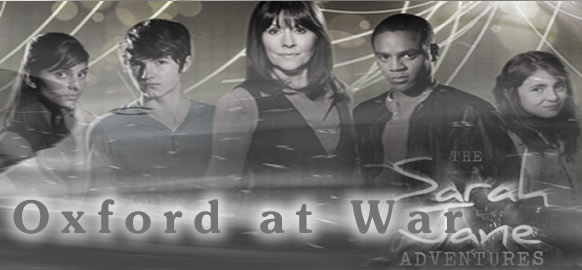
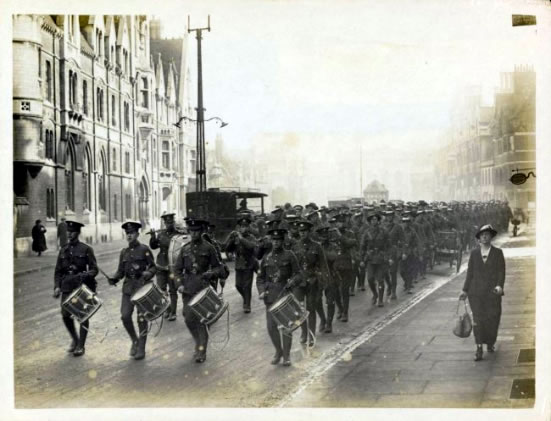
Luke and Pieter, along with their postgraduate friends, Sanjay and Eoin, moved and stopped with the tide of visitors viewing the exhibits in the main exhibition hall of the Bodleian Library.
The subject of the exhibition – entitled Oxford at War – was, of course, the First World War in this, the centenary year of the outbreak of that terrible conflict. It included primary sources such as diaries and memorabilia saved by the soldiers themselves, film footage and interactive material. For Luke, who took in information on any subject almost by osmosis it was a feast. For Pieter it was a curious and sometimes disturbing experience.
Neither was sure if their other two friends were taking the exhibition seriously at all. Certainly neither of them saw it as anything more than another historical exhibition. They felt no personal connection to what they were looking at.
Luke and Pieter did their best not to be distracted by the sometimes trivial comments of their friends as they paused for a long look at a series of propaganda posters that encouraged the first volunteers to enlist during the autumn of 1914.
“They really made a big thing out of duty to king and country,” Luke noted as he viewed a full colour image of General Kitchener and his famous ‘Your Country Needs You’ slogan. He told Pieter about the remark made by Lady Asquith that ‘as a general, Kitchener makes a good poster.’ Pieter smiled, but did not quite appreciate the century old joke.
“In Germany they made just as big a thing out of duty to Kaiser and Fatherland,” he mused. “A lot of men went to war on both sides thinking they were fighting a just cause. Is it fair to assume that ordinary, decent German men were wrong just because we lost the war?”
“Does that mean you believe that the German men were fighting a just cause?” Eoin asked Pieter.
“I mean that the ordinary soldiers were not the monsters they are portrayed as in some of these images.” He pointed to a more controversial poster in which a German soldier with a fierce expression was stamping on a screaming woman. “I think some of these distort the truth – as do many of the posters which encouraged German men to fight against the military ambitions of the British Empire, of course.”
“So you DO think the Germans were right?” Eoin insisted.
“I think war is a bad thing,” Pieter answered. “It would have been better if this had not happened, at all.”
“That’s a cop out. As a German you must have some thought about it all. I mean, your country declared war on everyone else in Europe - twice. Bear in mind, I'm Irish. I don't give a monkey’s about king and country. I just want to know what you think.”
“Britain and Germany have been comrades in NATO since before I was born,” Pieter replied. “The question hardly means ANYTHING to me, except I'm glad I'm not an actor. The only parts for Germans are U-boat Captain or Camp Commandant.”
Luke and Sanjay both laughed at Pieter's light-hearted response to a serious question. Eoin didn't laugh. He pressed for an answer.
“Oh, give it a rest,” Sanjay told him as Pieter’s discomfort became more obvious. “We don't hassle you about the IRA because you're Irish.”
Eoin was suitably chastised by that. Sanjay drew him away to look at the mock up of a trench on the western front. Luke and Pieter viewed a video film of recruits marching through Oxford. It was a difficult video for them. They saw just how young the men were – many of whom would die in terrible battles within weeks of their recruitment.
“If we were students here a hundred years ago....” Luke began.
“The war began in August, during the summer holidays,” Pieter reminded him. “I would have been in Germany and I expect I'd have had to stay there. I would have been encouraged to join the Kaiser’s army – to fight the imperialist British war machine.”
“We would have ended up as enemies, perhaps shooting at each other.”
It was a grim and chilling notion. The two friends looked at each other and had the same thought.
“Let's get out of here. I'm tired of war pictures. Let's go up to the Parks and sit for a while in the sunshine. Let’s be quiet together.”
They headed for the exit, expecting to come out onto a traffic jam at the three way corner of Broad Street, Parks Road and Catte Street. It was the usual situation in the narrow thoroughfares of Oxford, built before the internal combustion engine had even been dreamt of.
These were the same streets, the same familiar buildings, but there was no traffic jam. Broad Street was blocked at the top by crowds cheering a parade that was coming up towards Parks Road.
“Is this some kind of reconstruction?” Luke asked. “Everyone seems to be in period costume – look at the dresses the women are in – their hats and shoes.”
“No,” Pieter responded. “Luke... I think it is real. Look around. There are no traffic lights. Look over there… a horse drawn cab... what were they called in England?
“Hansom cabs,” Luke answered. “Pieter, I think you’re right. I don’t know how it happened. All we did was walk through a door. But we've gone back in time to the worst possible year to be our age.”
They should have turned around and stepped back into the Bodleian library to see if the time rift - or whatever it was – would bring them back to their own time when the war was a subject for history lectures.
That would have been the sensible thing to do.
But they were young men and they didn't always do what was sensible.
Instead they joined the crowd and watched the parade of young recruits in their brand new uniforms go by – possibly the very same parade they had been looking at on the restored film. They heard a brass band playing rousing and patriotic tunes as it followed behind them.
As they pushed to the front of the crowd people all around cheered and waved small paper Union Flags. From time to time young women ran out from the crowd to embrace a soldier or press a flower or some small token into his hand. Tearful but proud older women called out their love to sons going to do their bit for ‘King and Country’.
When the official parade had passed by the crowd broke ranks and followed them, singing along to the tunes the band was still playing. They made their way up to the wide open space of University Parks where the recruits were mustering to hear a rousing speech by the general in command of the Oxfordshire brigades.
Luke and Pieter followed, too. They felt unable to go in any other direction. As much as they needed to find a way back to their own time and place, there was a compulsion to go with this patriotic crowd.
“Why aren't you both in uniform?” demanded an attractive girl in a blue dress and straw hat decorated with waxed fruit. For a moment neither realised they were being addressed. She stood in front of them, forcing them to stand still and take notice of her.
“I’m sorry?” Luke questioned her as she repeated her question.
“So you should be, you shirker, you coward,” the girl answered in a venomous tone. “My brother, Willie, went last week and he's only seventeen.”
“That was a silly thing for him to do,” Luke replied. “What will your mother think if he is killed?
“She will be proud of his bravery, not like you two. Shame on you for the cowards you are.”
The girl reached into the handbag she was carrying and thrust two small cards at Luke and Pieter. The cards had white feathers pinned to them. Luke knew at once the meaning of these tokens. Pieter had never seen such a thing before.
“What is this?” he asked. The girl looked at him in horror as he revealed his foreign accent.
“Oh, my God!” she exclaimed. “You're German.”
“No,” Luke protested quickly as the immediate future presented itself in dangerous colours. “No, he's Swiss. He’s from Switzerland. Switzerland is neutral.”
But it was no use. The girl was screaming and shouting, telling everybody that there was a German in their midst. People were already turning and pointing, talking angrily about an enemy and a cowardly collaborator spying on their brave boys in uniform.
“Pieter, run!” Luke called out urgently. “Run now.”
He needed no other encouragement. They both ran across the wide meadow where the muster was taking place and towards the stand of trees that bordered it. They dared to look around once and saw policemen in the mob baying for their blood. There would be no help or protection from the civilian authorities.
“Don't stop,” Luke insisted, needlessly, since Pieter had no intention to stop. “They want to arrest us as spies. We'll be thrown into jail – if we’re not lynched, first.”
They ran until they reached Parks Road again, where they almost ran in front of the bus to Banbury. The driver swore at them and called them a pair of idiots before driving on.
The two young men looked around to see students enjoying the autumn sunshine on the park. They looked at the stream of traffic stopping for the lights at the junction with the A4165.
“Buses, Traffic lights….”
“We're back,” they said in unison.
“Gott sei Dank,” Pieter sighed. Nobody looked at him accusingly for speaking in his own language. This country was at peace with his.
“Let's get back to our flat,” Luke suggested. “I want to tell mum about this.”
Sarah-Jane Smith was intrigued by their story and more than a little worried by their negative experience of Oxford in wartime. Luke assured her more than once that they were shaken but unhurt. Only when she accepted that did she consider what had caused their brief slip back in time.
“It was probably a random temporal spike,” she said. “I'll get Mr Smith to look into it. But it shouldn't happen again, at least not in the same place. Stable temporal portals are rare. They only happen in places where there is a permanent rift – like Cardiff. Oxford has never been a major cause for concern.”
“Good,” Pieter remarked. “I really don’t want to be lynched in 1914. Or arrested as a spy, either.”
“We still have the white feathers,” Luke commented. “I don't think either of us deserve them, though. We aren't cowards. We're just lucky to have been born in a time when we don't have to fight.”
“That is fortunate,” Pieter added. “I do not wish to new Luke's enemy. He is my friend – my special friend.”
“How special?” Sarah-Jane asked. But neither of them elaborated. “Never mind. I'm just a nosy mum. Tell you what, though. Come on down to London for the weekend. I'm going to the Cenataph on Remembrance Sunday with Captain Yates. We're laying a wreath on behalf of U.N.I.T. The Brigadier used to do it. We're the next in line of the old lot, from the 1970s. A couple of youngsters keeping us company would make us feel a bit less decrepit.”
Luke and Pieter looked at each other and knew their answer.
“We'd love to be there, mum,” Luke promised. “Both of us.”
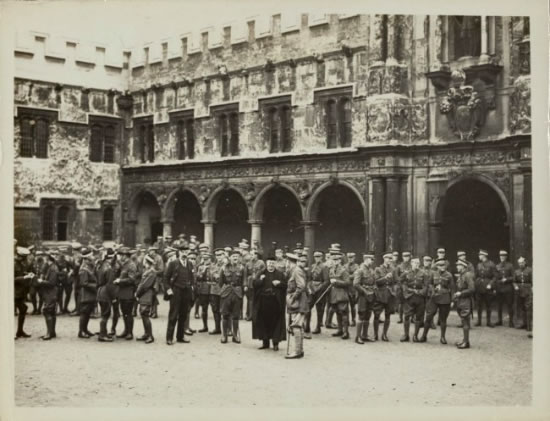
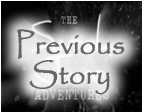 |
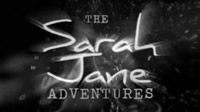 |
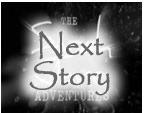 |